I planned to write a full report about the Maryland Sheep & Wool Festival today. But after three days at the wholesale trade show and three days for Maryland Sheep & Wool, I am swamped with work and feeling scattered. No complaints here—I'm my own boss, and there is nothing on my plate I didn't happily agree to.
Besides, it was cold and rainy in Maryland, the show was far too crowded for my comfort (although I'm sure it was great for the vendors), and I drove 450 miles each way. I have no doubt that exhaustion and discomfort would color any comprehensive review I might write.
So instead, I bring you some photos of sheep:
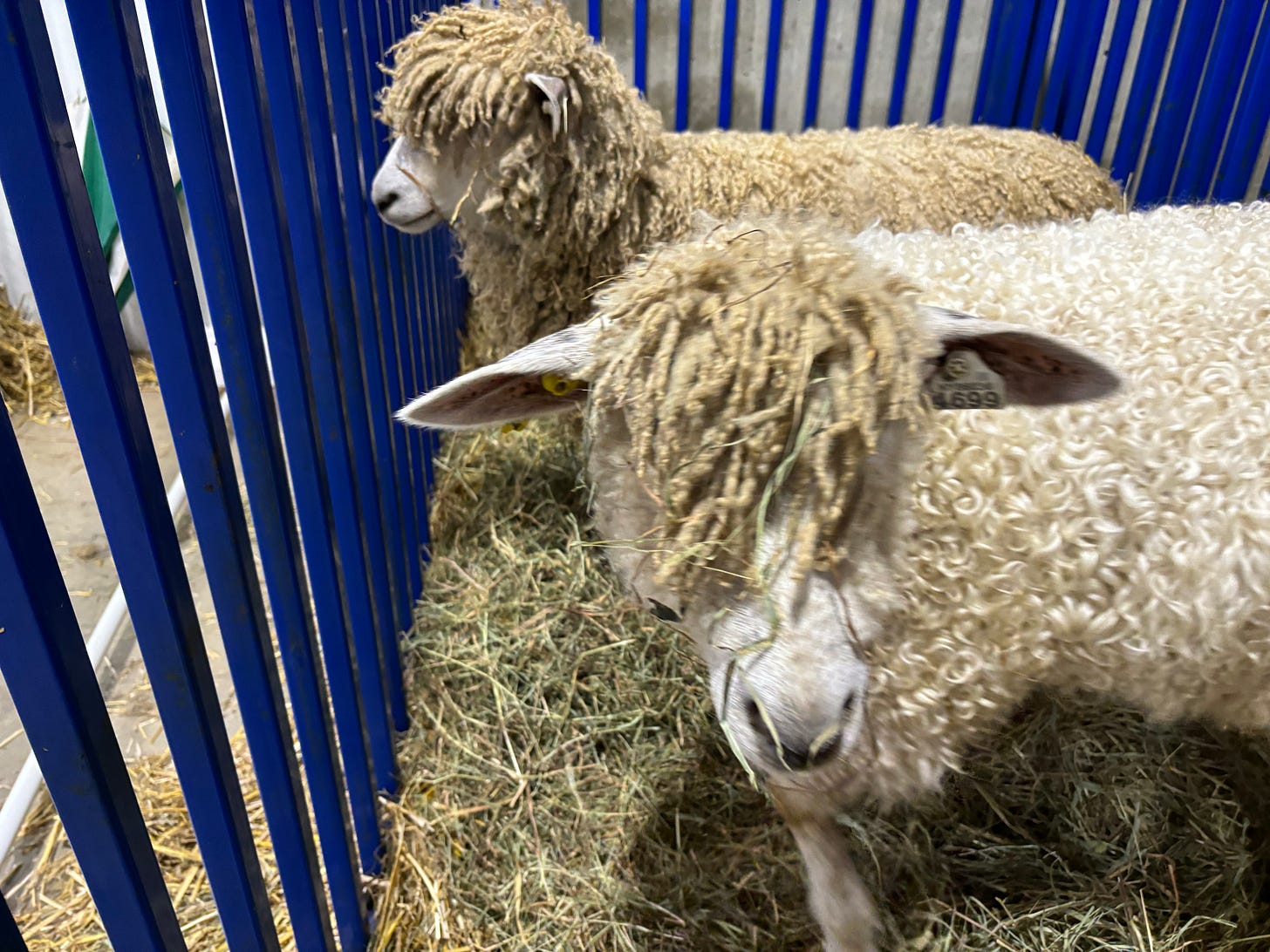
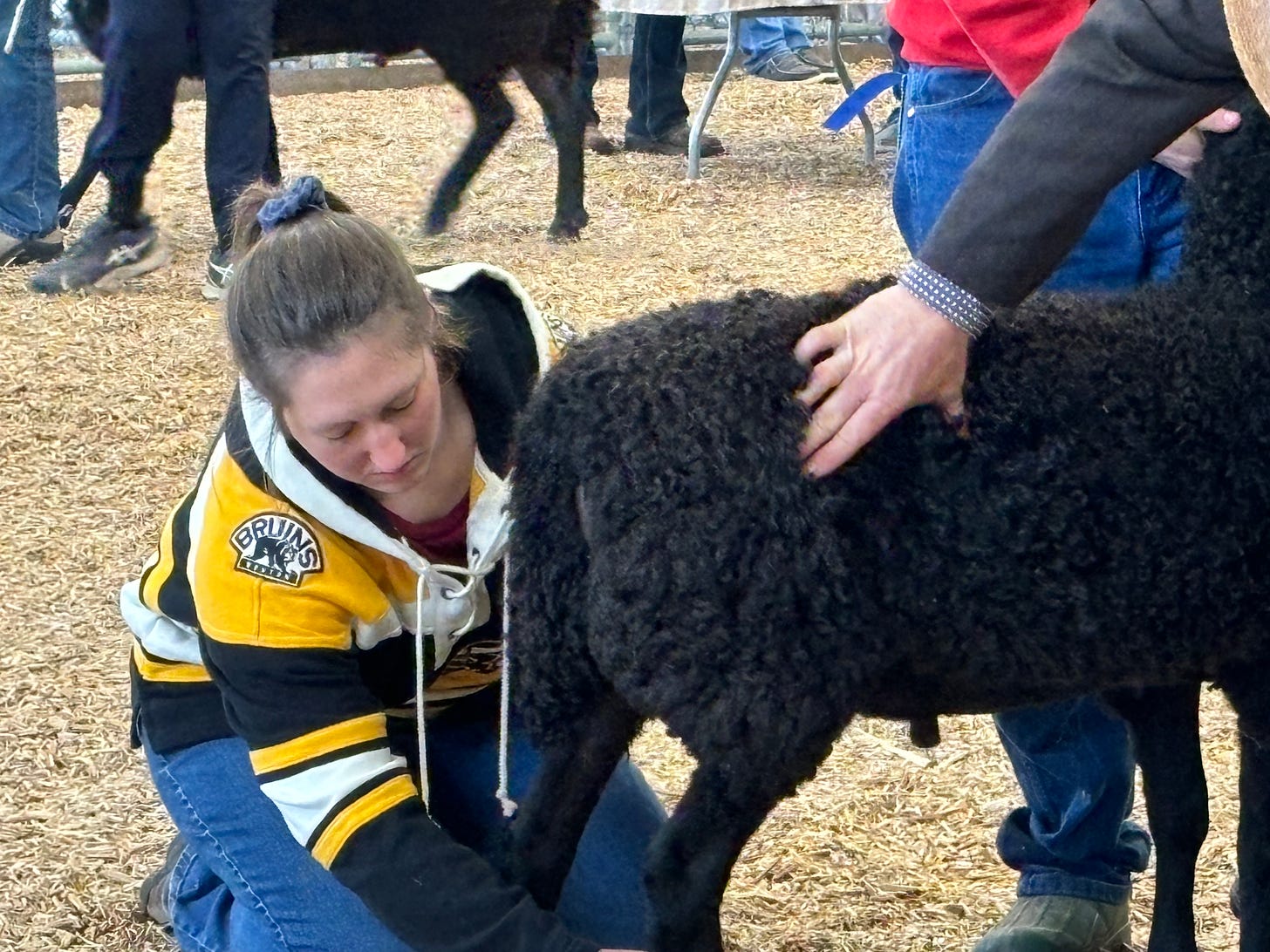
Between the two shows, I came home with some yarns I'm eager to play with. Watch for full reviews in the coming weeks.
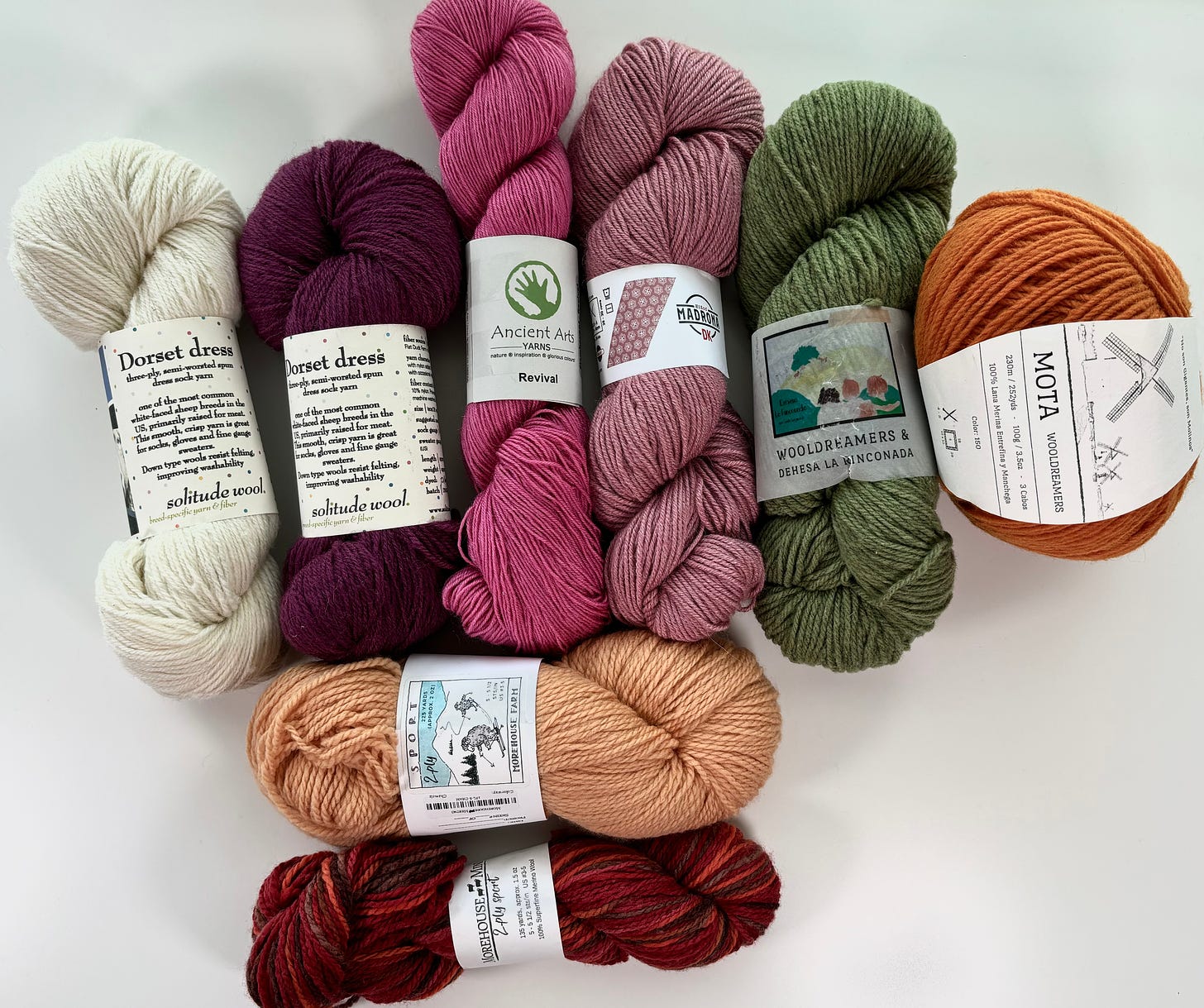
More Books Are Here!
My friend (and subscriber to A Good Yarn) Myrna Stahman sent me another box of her lovely book Stahman's Shawls and Scarves to share with you. If you missed the first giveaway, here is your second chance.
Some of the books have already been set aside for those who were on the waiting list. There are six books left, ready to go to a new home. If you would like one, send me a message using the button below. I will respond asking for your shipping address and giving you my PayPal info. You'll need to send me $5 for postage via PayPal. One book per person, and I will ship to US addresses only.
While traveling, I finished a book that I think everyone should read. In fact, I probably mentioned this book to everyone I talked to for more than 5 minutes last week. It is American Flannel: How a Band of Entrepreneurs Are Bringing the Art and Business of Making Clothes Back Home by Steven Kurutz.
The author is a New York Times features reporter and vintage clothing aficionado. This book tells the story of how the US lost the ability to manufacture high-quality, moderately priced clothing. Through a combination of trade policy and the quest for ever-cheaper labor, we've allowed our textile manufacturing industry to atrophy over the past 40 years. Factories have closed, hollowing out once-proud communities throughout the US. I'm sure a similar story could be told about clothing manufacturing in the UK and throughout Europe.
Kurutz follows a few courageous and visionary leaders as they seek to build new companies making clothing in the US from materials sourced in the US. Bayard Winthrop of American Giant, and Gina Locklear of Zkano are our guides to the current American apparel manufacturing landscape. We're with them every step of the way as they try to source materials and machinery for their products. Perhaps the biggest challenge they face is finding people with the skills and expertise to create the products they envision. When an industry has been shrinking for 40 years, skilled workers retire or pass away, and no new workers are trained.
In 1980, at least 70% of the clothing worn in the US was made in the US. Today, that number is estimated at 3%.
I remember the 1970s television commercials with the "look for the union label" jingle. Do you?
I was shocked to read that the International Ladies Garment Workers Union was dissolved in 1995. And I was saddened when I realized I hadn't even noticed the ILGWU was gone.
Kurutz drives home his point by recounting the shortage of personal protective apparel during the COVID pandemic that led to hospital workers trying to sterilize masks for re-use and wearing garbage bags in place of gowns. Forgoing our identity as a country which makes the things we need has a direct cost.
Reading this book opened my eyes. "Made in America" will become a factor in my clothing purchase decisions. I've bookmarked the website for Zkano so the next time I need to buy socks, they will be organic cotton socks manufactured in Fort Payne, Alabama. And when American Giant expands their women's size range, I'll give their clothing a try.
I borrowed American Flannel from my local public library. The link in the title above the photo is an affiliate link for Bookshop.org. If you purchase the book using this link, I'll receive a small commission at no additional cost to you. However you find it, I hope you'll read this book.
Things that caught my eye
I'm enjoying watching Northern Exposure on Prime video. I remember this series from its original broadcast run, from 1990 to 1995. It is funny, warmhearted, and leaves me feeling good about humanity.
The 2024 Pulitzer Prizes were announced this week. Master Slave Husband Wife, which I talked about a few weeks ago, won the prize for biography.
Sunday is Mother’s Day here in the US. If you are a mother, I hope you are celebrated and appreciated every day. Flowers and gifts are nice, but a big hug and a heartfelt thank you are even better.
When someone asks you where you came from, the answer is your mother.
— Anna Quindlen
As always, thank you for inviting me into your inbox every week. I never take that permission for granted.
Continue the conversation—Do you pay attention to the country of origin before you make a clothing purchase? Leave a comment and tell me what you think.


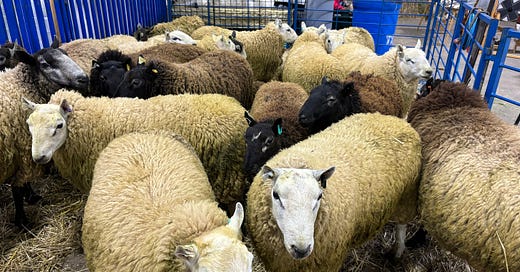



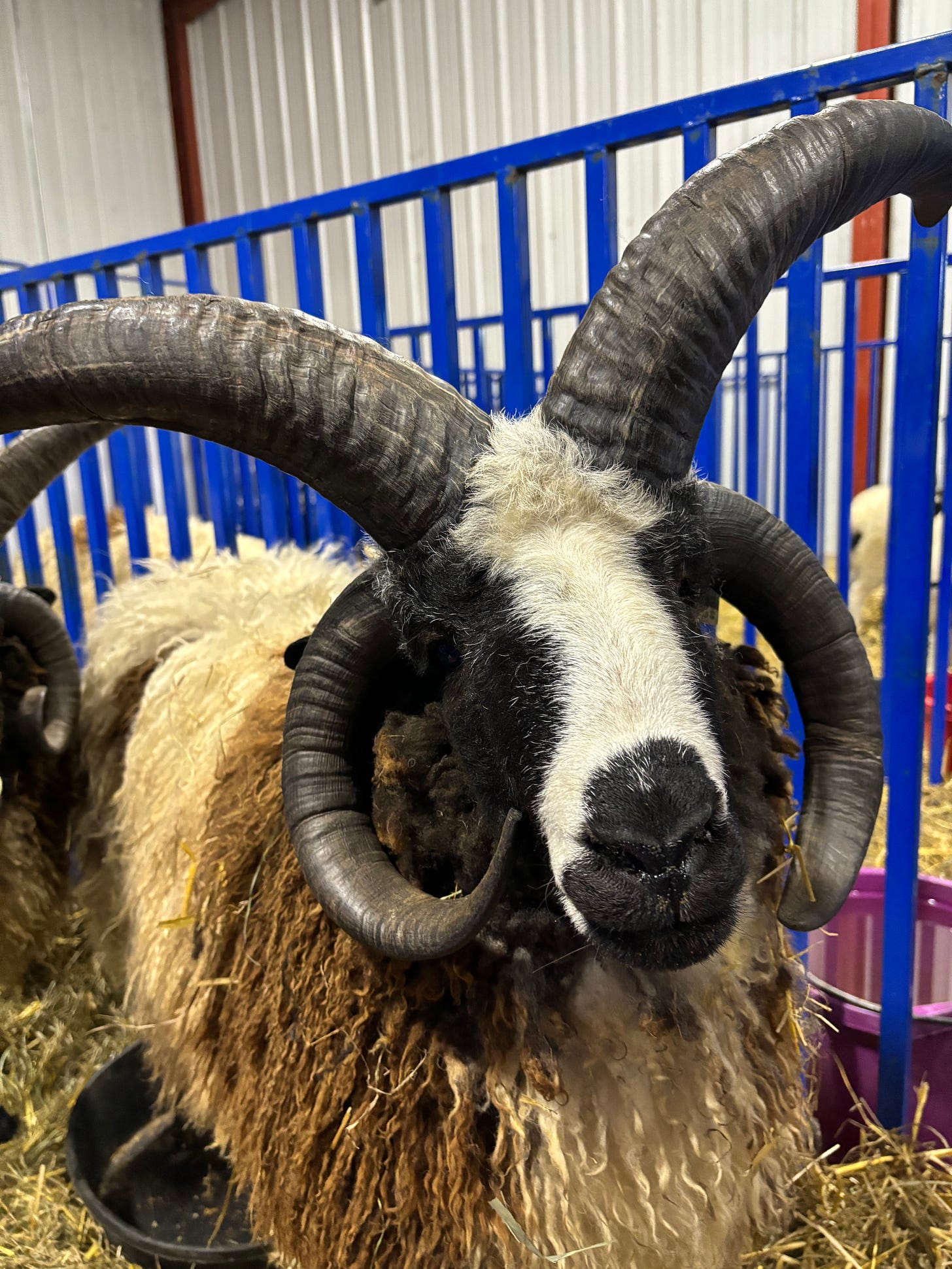
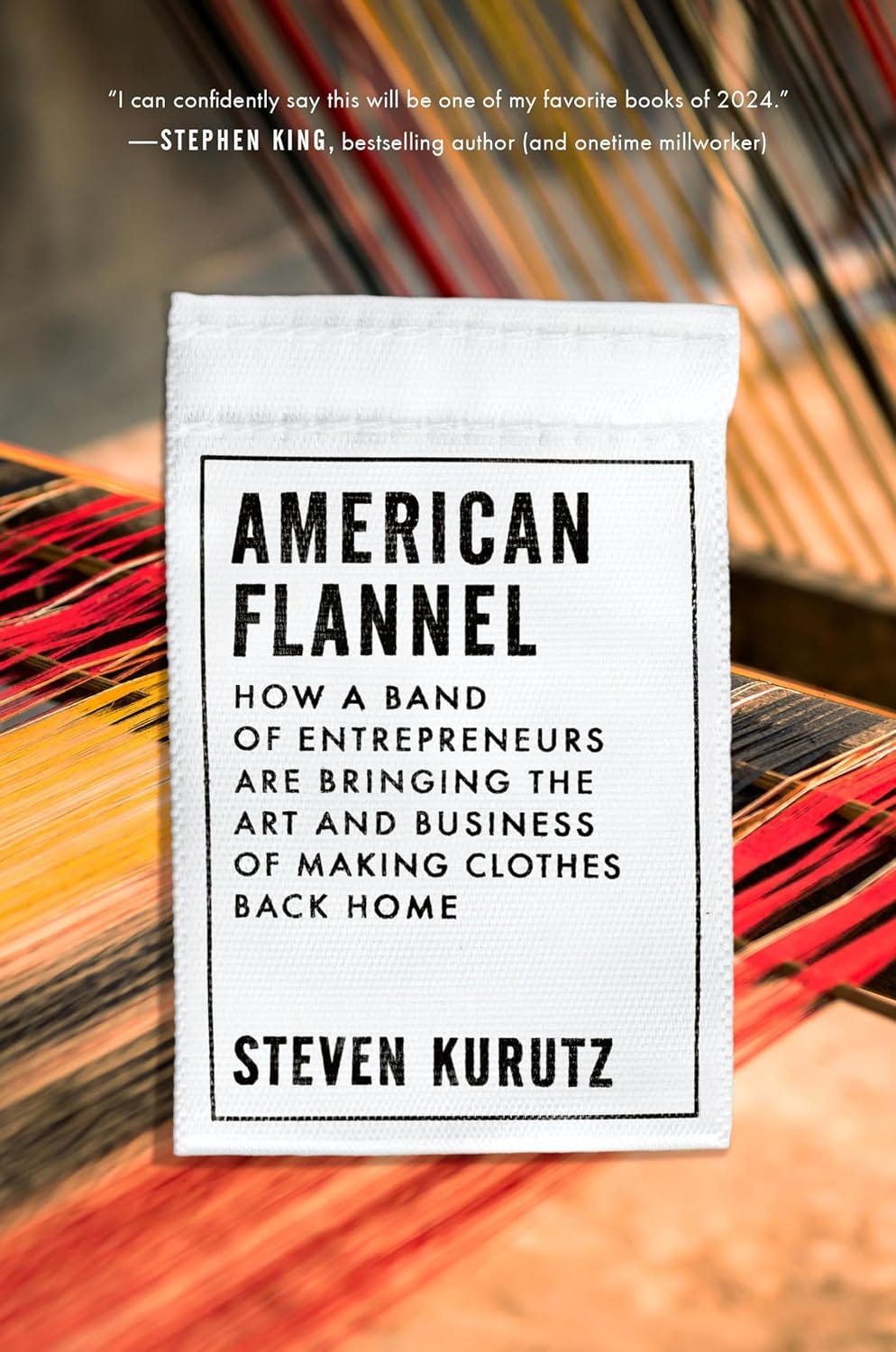
Love the sheep pictures!
I love the photos of the sheep! I’ll chuckled a bit as I read your post because it sounded like you were too tired to write much, but you kept writing 🙂 I do look at clothing labels, but fortunately I shop for clothes a lot less since I retired. Still, when I do shop, especially online, I do a deep dive into a clothing company’s manufacturing process.